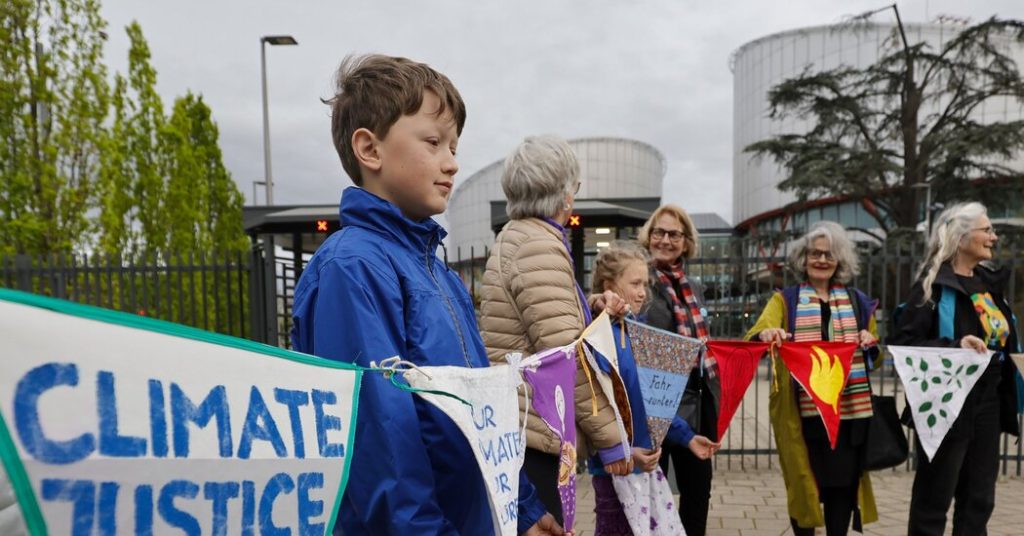The European Court of Human Rights in Strasbourg, France, made a landmark ruling that the Swiss government had violated its citizens’ human rights by not doing enough to combat climate change. This decision is part of a larger movement of climate-related lawsuits seeking to use human rights law to urge governments to take action against global warming. While the court rejected cases brought by a former mayor in France and a group of young people in Portugal, it found that Switzerland had indeed violated human rights conventions by not meeting climate targets.
One of the cases that the court considered involved a group of Swiss women over the age of 64, known as KlimaSeniorinnen, who argued that the government’s failure to reduce greenhouse gas emissions sufficiently to curb global warming has infringed upon their rights to life and autonomy. Similarly, a former mayor of a coastal town in France, Damien Carême, filed a complaint asserting that his country has not taken adequate measures to prevent climate change, thereby jeopardizing his town. The town of Grande-Synthe faces increased flood risks due to climate change.
In a third case, six young people from Portugal born between 1999 and 2012 brought a suit claiming that the current and future impacts of climate change, such as heat waves and wildfires, are negatively affecting their lives, well-being, and mental health. They pointed to 33 countries in the region that are signatories to the Paris Climate Agreement, accusing them of failing to fulfill their commitments to reduce greenhouse gas emissions. The court deemed these cases inadmissible, not meeting the criteria required for consideration.
The rulings have significant implications, as they highlight the application of human rights law to climate change issues. The court’s decision that Switzerland violated human rights conventions by not meeting climate targets could set a precedent for other similar cases, prompting national courts to closely monitor the outcome. The legal battle over climate change is likely to intensify, as citizens increasingly demand action from their governments to address this global crisis.
While the Swiss government has maintained that human rights law does not apply to climate change and that addressing it should be a political process, the court’s ruling challenges this perspective. The cases heard by the European Court of Human Rights underscore the urgency and importance of tackling climate change, especially as vulnerable populations, such as older women and young people, face the detrimental effects of global warming. This represents a significant development in the intersection of climate action and human rights advocacy.
Overall, the rulings by the European Court of Human Rights signal a shift towards recognizing the link between climate change and human rights violations. By holding governments accountable for their failure to adequately address global warming, the court sets a precedent for further legal action in the fight against climate change. These landmark decisions send a clear message that all nations must prioritize climate action to safeguard the fundamental rights and well-being of their citizens.


